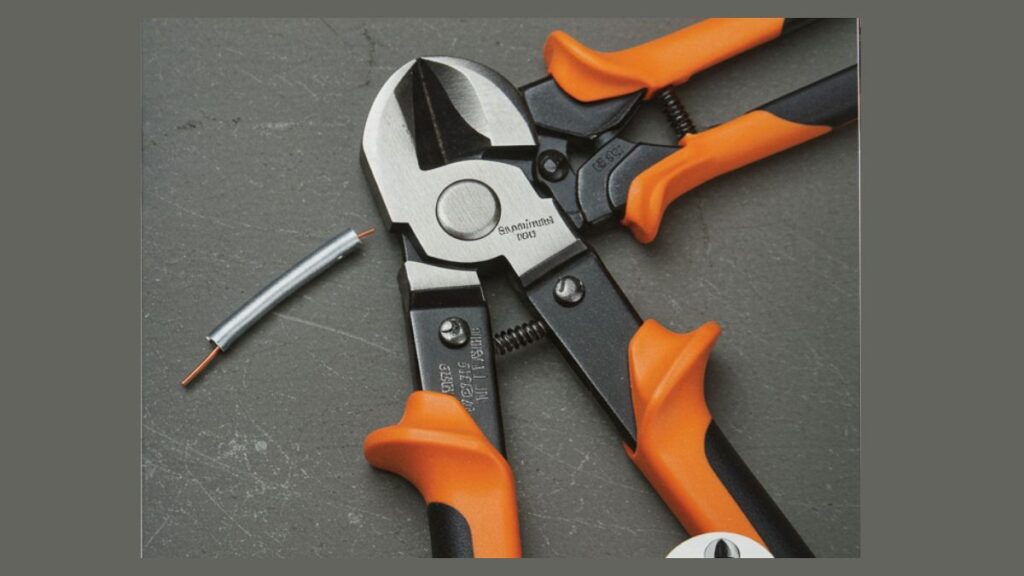Introduction
When it comes to electrical work, DIY projects, or even crafting, a wire cutter is an essential tool in your toolkit. Despite its simple appearance, a wire cutter is a versatile instrument used in multiple industries—from home repairs to large-scale engineering work. In this article, we’ll explore what wire cutters are, the different types available, their uses, safety tips, and how to choose the best one for your needs.
What is a Wire Cutter?
A wire cutter is a hand-held tool designed specifically to cut through wires of various materials and thicknesses. It typically features two sharp, angled blades that close together when the handles are squeezed, slicing through the wire cleanly. Some wire cutters also include additional features like wire strippers, crimpers, or pliers.
Types of Wire Cutters
There are several types of wire cutters, each designed for a specific task. Knowing the difference can help you choose the right tool for the job.
1. Diagonal Wire Cutters
Also known as “side cutters,” these have blades that cut diagonally and are ideal for cutting soft to medium wires.
2. End Cutters
These have flat cutting edges at the tip and are great for cutting wires close to a surface, like when removing nails or trimming excess.
3. Needle Nose Wire Cutters
These combine the cutting feature with long, narrow jaws for precision work, especially in tight spaces.
4. Lineman’s Cutters
A heavy-duty option used by electricians, these tools can cut thick wires and sometimes feature a crimping section for added functionality.
5. Flush Cutters
Used mainly in electronics or jewelry making, these give a clean, flush cut without leaving sharp edges.
Should you wish to explore other topics, head to our main blog. We’ve got more!
Uses of Wire Cutters
Wire cutters are not limited to cutting just electrical wires. Their applications extend into many fields:
- Electrical Work: Stripping insulation and cutting wires.
- Crafting: Cutting beading wire, floral wire, or jewelry wire.
- Construction: Trimming rebar ties or fencing wires.
- Automotive Repair: Cutting car wiring or zip ties.
- DIY Projects: Home renovations, furniture repair, etc.
How to Choose the Right Wire Cutter
When selecting a wire cutter, consider the following factors:
- Wire Material & Thickness: Thicker or harder wires need heavy-duty cutters.
- Blade Sharpness: Dull blades can damage the wire and cause injury.
- Ergonomic Grip: A comfortable handle reduces strain during prolonged use.
- Additional Features: Strippers, crimpers, and spring-loaded handles can enhance usability.
Safety Tips for Using Wire Cutters
Working with wire cutters can be dangerous if proper precautions are not taken:
- Always wear safety glasses to protect your eyes from flying bits of wire.
- Cut away from your body to avoid injury.
- Check the wire for electricity before cutting—use a voltage tester.
- Keep the blades clean and sharp to maintain cutting performance.
- Store wire cutters in a safe place, out of reach of children.
Maintenance Tips for Longevity
Proper care can extend the life of your wire cutters:
- Clean after use with a cloth to remove debris.
- Oil the pivot joint regularly for smooth operation.
- Sharpen the blades occasionally if the tool is not cutting efficiently.
- Avoid cutting hardened wires unless the cutter is rated for them.
Conclusion
A wire cutter is a powerful yet simple tool that plays a crucial role in various tasks, from intricate electronics to robust electrical installations. By understanding the types and proper usage, you can ensure safety, precision, and durability. Whether you’re a seasoned electrician or a casual DIYer, investing in the right wire cutter will make your work easier and more effective.
If you want to read more, visit our blog page. We have more topics!
FAQs About Wire Cutters
Q1: Can I use wire cutters to cut steel wire?
A: Only if the wire cutter is rated for hardened steel. Otherwise, it may damage the tool.
Q2: What’s the difference between a wire cutter and a wire stripper?
A: A wire cutter cuts the wire entirely, while a wire stripper removes insulation without cutting the wire.
Q3: Are wire cutters safe for children to use?
A: No, they should only be used under adult supervision due to the risk of injury.
Q4: Can I sharpen wire cutter blades?
A: Yes, but it requires proper tools and techniques. Alternatively, replace the cutter if it becomes too dull.
Q5: What is the best wire cutter for electronics?
A: Flush cutters are best for electronics because they provide clean, precise cuts without damaging delicate components.
Want to hear more tips? Please look at our page for more informative and helpful blog posts.







